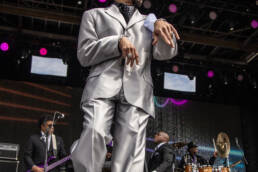Styx: A River of Dreams Born from Ambition
Picture a basement in Chicago’s Roseland neighborhood, 1960s haze hanging in the air, where a trio of kids—brothers with fire in their fingers and a drummer with a relentless beat—decided they weren’t just going to play music. They were going to conquer it. For Styx, the spark that ignited a career wasn’t fame or fortune—it was the sheer, stubborn belief that they could build something bigger than themselves, something that could echo through arenas and etch itself into rock history. Their primary motivator? A hunger to escape the ordinary, to take their working-class roots and spin them into a tapestry of prog-rock grandeur, fueled by harmony, theatricality, and a refusal to fade into the background.

The Genesis of a Rock Legacy
Styx’s story begins with the Panozzo twins—Chuck (born September 20, 1948) and John (born September 20, 1948)—and their neighbor Dennis DeYoung (born February 18, 1947). Growing up on Chicago’s South Side, the trio formed a bond over music as tight as family. Chuck picked up the bass, John the drums, and Dennis the keyboards, his voice a soaring instrument of its own. By 1961, they were jamming as The Tradewinds, a name that stuck until 1964 when they morphed into TW4 (Tradewinds Four). It wasn’t until 1972, after signing with Wooden Nickel Records, that they became Styx, inspired by the mythical river—a nod to their ambition to flow beyond the confines of their blue-collar beginnings.
The lineup solidified with James “J.Y.” Young (born November 14, 1949), a guitarist with a gritty edge, joining in 1970, followed by Tommy Shaw (born September 11, 1953), whose songwriting and vocals would redefine their sound, in 1975. These five—Dennis, Chuck, John, J.Y., and Tommy—became the classic Styx lineup, a machine of melody and muscle that ruled the late ‘70s and early ‘80s.
A Career of Highs, Splits, and Reunions
Styx’s career is a rollercoaster of triumph and turmoil. After early albums like Styx (1972) and The Serpent Is Rising (1973) built a cult following, their 1975 move to A&M Records unleashed Equinox, featuring “Lorelei.” But it was The Grand Illusion (1977) that catapulted them to stardom, going triple platinum with hits like “Come Sail Away.” The classic lineup—Dennis DeYoung (vocals, keyboards), Tommy Shaw (guitar, vocals), James “J.Y.” Young (guitar, vocals), Chuck Panozzo (bass), and John Panozzo (drums)—peaked with Paradise Theatre (1981), a concept album that hit No. 1 on the Billboard 200.
Tensions brewed, though. Dennis’s theatrical leanings clashed with Tommy and J.Y.’s rock instincts, leading to Kilroy Was Here (1983)—a polarizing rock opera. Tommy left in 1983, and the band splintered. Reunions followed: a 1990 comeback with Glen Burtnik replacing Tommy produced Edge of the Century, but John’s health declined due to alcoholism, leading to his death in 1996. Tommy returned in 1995, and with Todd Sucherman on drums and Lawrence Gowan stepping in for Dennis (who exited in 1999 amid health issues), Styx soldiered on. Chuck scaled back in 1999 after an HIV diagnosis, with Ricky Phillips often filling in.
Beyond Styx, Tommy Shaw formed Damn Yankees in 1989 with Ted Nugent and Jack Blades, scoring hits like “High Enough.” Dennis pursued a solo career and Broadway, notably playing Pontius Pilate in Jesus Christ Superstar. Relationships with other artists? Their 1981 tour with REO Speedwagon cemented a Midwestern rock brotherhood, while a 2005 spat with Dennis over a VH1 special made headlines. On TV, Styx’s music graced The Simpsons, South Park, and Glee (covering “Come Sail Away”), with the band appearing on Behind the Music and One Tree Hill.
Awards? Styx hasn’t nabbed Grammys, but The Grand Illusion and Paradise Theatre earned platinum plaques aplenty—over 20 million albums sold worldwide. They were inducted into the Illinois Rock & Roll Hall of Fame in 2021, a nod to their Chi-Town roots.
Here’s a look at their biggest songs:
- “Come Sail Away” – Written by Dennis DeYoung, this 1977 epic hit No. 8 on the Billboard Hot 100, a prog-pop masterpiece.
- “Renegade” – Penned by Tommy Shaw, this 1979 rocker reached No. 16, a staple of their live fury.
- “Babe” – Dennis DeYoung’s 1979 ballad, written for his wife Suzanne, became their only No. 1 hit.
- “The Best of Times” – Another DeYoung creation from 1981, peaking at No. 3, it’s pure Paradise Theatre pomp.
Controversy on the Stygian Shores
Styx hasn’t dodged drama. The Dennis DeYoung-Tommy Shaw feud is legendary—Dennis’s push for “Mr. Roboto” in 1983 alienated Tommy and J.Y., splitting the band and fans. Dennis sued over the Styx name in the late ‘90s, losing to the current lineup. Then there’s Chuck Panozzo’s 2001 coming out as gay and his HIV battle, a brave move that shifted perceptions in rock’s macho world. In 2017, Dennis crashed a Styx show in Montreal uninvited, serenading fans with “Come Sail Away” from the crowd—awkward, but a testament to his lingering pull.
A Night of Crystal Ball Magic
Let’s rewind to July 1, 1978, at Chicago’s International Amphitheatre. Styx was riding The Grand Illusion’s wave, and the hometown crowd was electric—12,000 fans packed in tight. Mid-set, they launched into “Crystal Ball,” Tommy Shaw’s haunting ode from 1976. As his voice climbed—“I used to like to walk the straight and narrow line”—the band stretched the outro, J.Y.’s guitar wailing, John’s drums thundering like a storm. Then, unscripted, Dennis layered in a keyboard flourish, turning it into a 10-minute jam. The audience roared, lighters aloft, as Chuck later recalled: “It felt like we levitated the room.” A roadie slipped, knocking over a monitor, but no one cared—Styx owned the night. That raw, chaotic energy? It’s why they’re still packing venues in 2025.
Styx’s saga is one of resilience, reinvention, and a river that keeps flowing. From Chicago basements to sold-out arenas, they’ve navigated splits, losses, and lineup shifts with a sound that’s unmistakably theirs. Catch them live, and you’ll feel the current pull you under—in the best way possible.








